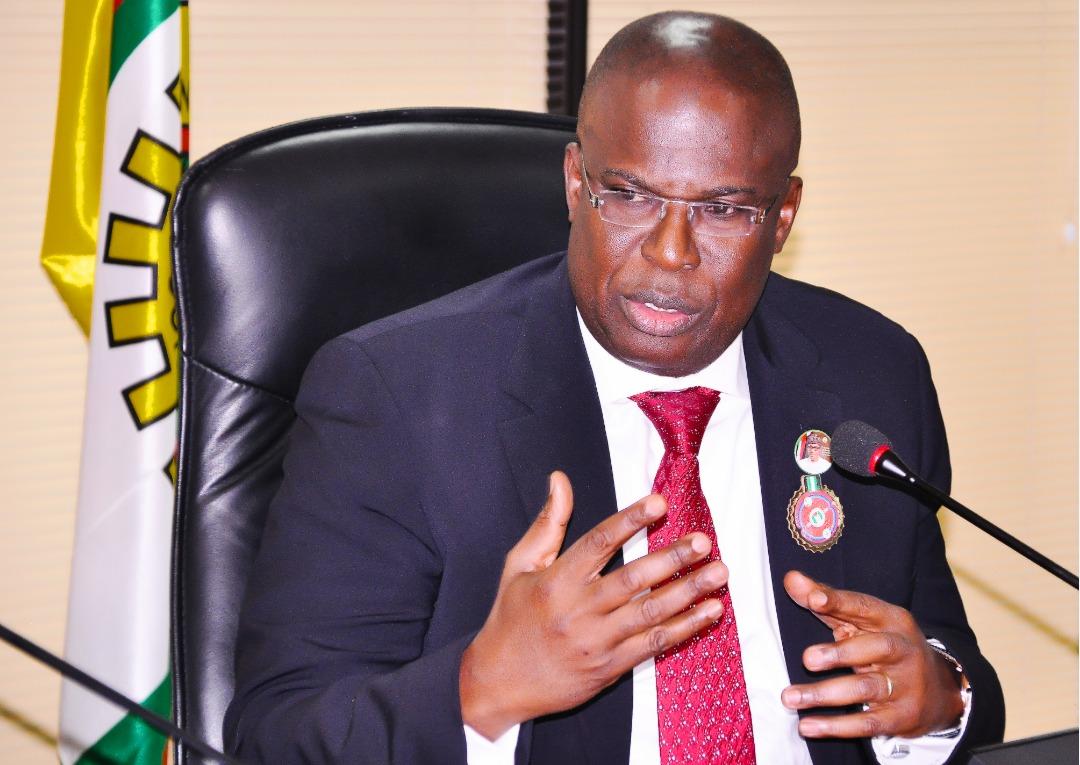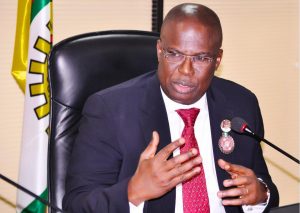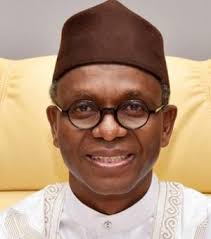Business
Did Timipre Sylva ‘deceive’ Buhari in a bid to approve the controversial Seplat-ExxonMobil oil deal?

Did Timipre Sylva ‘deceive’ Buhari in a bid to approve the controversial Seplat-ExxonMobil oil deal?
Timipre Sylva, minister of state for Petroleum, may have influenced President Muhammadu Buhari to approve the controversial sale of ExxonMobil shares to Seplat Energy, a decision that has now been reversed by the president, THE WITNESS reports.
Presidential sources disclosed to reporters that Sylva had encouraged Buhari to sign the deal, which Seplat Energy Plc had first announced in February, a development that surprised industry players and quickly prompted counter reactions.
Recall that on Monday, President Buhari approved the acquisition of ExxonMobil Corporation’s assets by Seplat Energy Plc despite moves by the Nigerian National Petroleum Company (NNPC) Limited blocking the deal.
The deal entails an agreement to acquire the entire share capital of Mobil Producing Nigeria Unlimited from Exxon Mobil Corporation, Delaware, in other words, ExxonMobil Nigeria’s entire offshore shallow water business, for $1.28bn.
According to the deal, ExxonMobil Nigeria’s shallow water business is an established, high-quality operation with a highly skilled local operating team and a track record of safe operations.
Coming in the wake of growing divestment from Nigeria by oil majors, the deal represented yet another significant setback to the country’s oil sector, given that local players largely lack the capacity to step into the gap, which may have warranted the intervention from the state owned oil company.
The NNPC which opposed the deal citing overriding national interest, it would be recalled, last month won a court decision temporarily blocking Exxon from selling assets in Nigeria to Seplat.
A judge in Abuja had granted NNPC an “order of interim injunction” on July 6, 2022, barring Exxon Mobil “from completing any divestment” in a unit that ultimately operates four licenses in Nigeria.
However, despite the extant injunction, Seplat on Monday, announced that it had received a letter from Sylva, the minister of state for Petroleum Resources notifying it that President Buhari had approved that ministerial consent be granted to Seplat Energy Offshore Limited (a Seplat Energy subsidiary)’s cash acquisition of the entire share capital of Mobil Producing Nigeria Unlimited (MPNU) from its shareholders, Mobil Development Nigeria Inc (MDNI) and Mobil Exploration Nigeria Inc (MENI), being entities of Exxon Mobil Corporation registered in Delaware, USA (“ExxonMobil”).
Seplat also stated that the approval was given by President Buhari in his capacity as the minister of Petroleum Resources, and with the granting of ministerial consent pursuant to the powers of the minister under Paragraphs 14-16 of the First Schedule of the Petroleum Act, 1969, separate announcement from the State House was released earlier.
It added that in the letter, the president directed that the HMSPR to convey ministerial consent to all relevant parties, including but not limited to the Nigerian Upstream Petroleum Regulatory Commission (“NUPRC”), the Nigerian National Petroleum Company Limited (“NNPC”), the ExxonMobil companies, the Federal Competition and Consumer Protection Commission (“FCCPC”), and Seplat Energy/Seplat Energy Offshore Limited.
But in a twist of events, the Nigerian Upstream Petroleum Regulatory Commission (NUPRC), which had previously declined to consent to the proposed acquisition deal, said the issue at stake was a regulatory matter, adding that status quo would remain on the issue.
The NUPRC in a statement later on Monday, said that the status quo remained in respect of the ExxonMobil/Seplat Energy share acquisition.
The agency, in the statement signed by its chief executive, Gbenga Komolafe, said that “the commission (NURPC) in line with the provisions of the Petroleum Industry Act 2021 is the sole regulator in dealing with such matters in the Nigerian upstream sector.
The statement added, “As it were, the issue at stake is purely a regulatory matter and the commission had earlier communicated the decline of ministerial assent to ExxonMobil in this regard. As such the commission further affirms that the status quo remains.
“The commission is committed to ensuring a predictable and conducive regulatory environment at all times in the Nigerian upstream sector.”
Having discovered lapses in the deal and angered by the Sylva’s action, President Buhari on Wednesday, reversed his approval of the deal.
Garba Shehu, presidential spokesman who communicated the reversal, said the president has taken a decision that the position of the Nigerian Upstream Petroleum Regulatory Commission be supported.
He said the earlier confusion was because “various agencies involved in (the) decision had not coordinated well among themselves.
“It has become clear that the various agencies involved in the decision had not coordinated well among themselves and having looked at all of the facts with all of the ramifications, the president decided the position of the regulator is to be supported.”
Sources within the Presidency had told this newspaper that there are extant laws governing such transactions, arguing that this statutory mandate lies within the purview of the Nigeria Upstream Petroleum Regulatory Commission.
One of the Presidency sources with knowledge of the transaction had told this website that the president had on July 5 issued a directive to the NNPC Limited to proceed with the acquisition of 40 per cent interest of ExxonMobil.
The source who said the approval by President Buhari still subsists, argued that that the president cannot suddenly reverse himself for a transaction of such magnitude.
Horatius Egua, senior special adviser on Media and Communication to the petroleum minister, speakingto reporters said the minister is yet to receive any communication of the president’s reversal of the oil deal, stressing that the president couldn’t have been deceived because he is intelligent enough to either consent or decline on national issues.
Business
Nigeria’s Inflation Drops to 15.10% as NBS Reports Deflationary Trend

Nigeria’s headline inflation rate declined to 15.10 per cent in January 2026, marking a significant drop from 27.61 per cent recorded in January 2025, according to the latest Consumer Price Index (CPI) report released by the National Bureau of Statistics.
The report also showed that month-on-month inflation recorded a deflationary trend of –2.88 per cent, representing a 3.42 percentage-point decrease compared to December 2025. Analysts say the development signals easing price pressures across key sectors of the economy.
Food inflation stood at 8.89 per cent year-on-year, down from 29.63 per cent in January 2025. On a month-on-month basis, food prices declined by 6.02 per cent, reflecting lower costs in several staple commodities.
The data suggests a sustained downward trajectory in inflation over the past 12 months, pointing to improving macroeconomic stability.
The administration of President Bola Ahmed Tinubu has consistently attributed recent economic adjustments to ongoing fiscal and monetary reforms aimed at stabilising prices, boosting agricultural output, and strengthening domestic supply chains.
Economic analysts note that while the latest figures indicate progress, sustaining the downward trend will depend on continued policy discipline, exchange rate stability, and improvements in food production and distribution.
The January report provides one of the clearest indications yet that inflationary pressures, which surged in early 2025, may be moderating.
Bank
Alpha Morgan to Host 19th Economic Review Webinar

Alpha Morgan to Host 19th Economic Review Webinar
In an economy shaped by constant shifts, the edge often belongs to those with the right information.
On Wednesday, February 25, 2026, Alpha Morgan Bank will host the 19th edition of its Economic Review Webinar, a high-level thought leadership session designed to equip businesses, investors, and individuals with timely financial and economic insight.
The session, which will hold live on Zoom at 10:00am WAT and will feature economist Bismarck Rewane, who will examine the key signals influencing Nigeria’s economic direction in 2026, including policy trends, market movements, and global developments shaping the local landscape.
With a consistent track record of delivering clarity in uncertain times, the Alpha Morgan Economic Review continues to provide practical context for decision-making in a dynamic environment.
Registration for the 19th Alpha Morgan Economic Review is free and can be completed via https://bit.ly/registeramerseries19
It is a bi-monthly platform that is open to the public and is held virtually.
Visit www.alphamorganbank to know more.
Business
GTBank Launches Quick Airtime Loan at 2.95%

GTBank Launches Quick Airtime Loan at 2.95%
Guaranty Trust Bank Ltd (GTBank), the flagship banking franchise of GTCO Plc, Africa’s leading financial services group, today announced the launch of Quick Airtime Loan, an innovative digital solution that gives customers instant access to airtime when they run out of call credit and have limited funds in their bank accounts, ensuring customers can stay connected when it matters most.
In today’s always-on world, running out of airtime is more than a minor inconvenience. It can mean missed opportunities, disrupted plans, and lost connections, often at the very moment when funds are tight, and options are limited. Quick Airtime Loan was created to solve this problem, offering customers instant access to airtime on credit, directly from their bank. With Quick Airtime Loan, eligible GTBank customers can access from ₦100 and up to ₦10,000 by dialing *737*90#. Available across all major mobile networks in Nigeria, the service will soon expand to include data loans, further strengthening its proposition as a reliable on-demand platform.
For years, the airtime credit market has been dominated by Telcos, where charges for this service are at 15%. GTBank is now changing the narrative by offering a customer-centric, bank-led digital alternative priced at 2.95%. Built on transparency, convenience and affordability, Quick Airtime Loan has the potential to broaden access to airtime, deliver meaningful cost savings for millions of Nigerians, and redefine how financial services show up in everyday life, not just in banking moments.
Commenting on the product launch, Miriam Olusanya, Managing Director of Guaranty Trust Bank Ltd, said: “Quick Airtime Loan reflects GTBank’s continued focus on delivering digital solutions that are relevant, accessible, and built around real customer needs. The solution underscores the power of a connected financial ecosystem, combining GTBank’s digital reach and lending expertise with the capabilities of HabariPay to deliver a smooth, end-to-end experience. By leveraging unique strengths across the Group, we are able to accelerate innovation, strengthen execution, and deliver a more integrated customer experience across all our service channels.”
Importantly, Quick Airtime Loan highlights GTCO’s evolution as a fully diversified financial services group. Leveraging HabariPay’s Squad, the solution reinforces the Group’s ecosystem proposition by bringing together banking, payment technology, and digital channels to deliver intuitive, one-stop experiences for customers.
With this new product launch, Guaranty Trust Bank is extending its legacy of pioneering digital-first solutions that have redefined customer access to financial services across the industry, building on the proven strength of its widely adopted QuickCredit offering and the convenience of the Bank’s iconic *737# USSD Banking platform.
About Guaranty Trust Bank
Guaranty Trust Bank (GTBank) is the flagship banking franchise of GTCO Plc, a leading financial services group with a strong presence across Africa and the United Kingdom. The Bank is widely recognized for its leadership in digital banking, customer experience, and innovative financial solutions that deliver value to individuals, businesses, and communities.
About HabariPay
HabariPay is the payments fintech subsidiary of GTCO Plc, focused on enabling fast, secure, and accessible digital payments for individuals and businesses. By integrating payments and digital technology, HabariPay supports innovative services that make everyday financial interactions simpler and more seamless.
Enquiries:
GTCO
Group Corporate Communication
[email protected]
+234-1-2715227
www.gtcoplc.com
-

 celebrity radar - gossips6 months ago
celebrity radar - gossips6 months agoWhy Babangida’s Hilltop Home Became Nigeria’s Political “Mecca”
-

 society6 months ago
society6 months agoPower is a Loan, Not a Possession: The Sacred Duty of Planting People
-

 society5 months ago
society5 months agoReligion: Africa’s Oldest Weapon of Enslavement and the Forgotten Truth
-

 news6 months ago
news6 months agoTHE APPOINTMENT OF WASIU AYINDE BY THE FEDERAL GOVERNMENT AS AN AMBASSADOR SOUNDS EMBARRASSING










